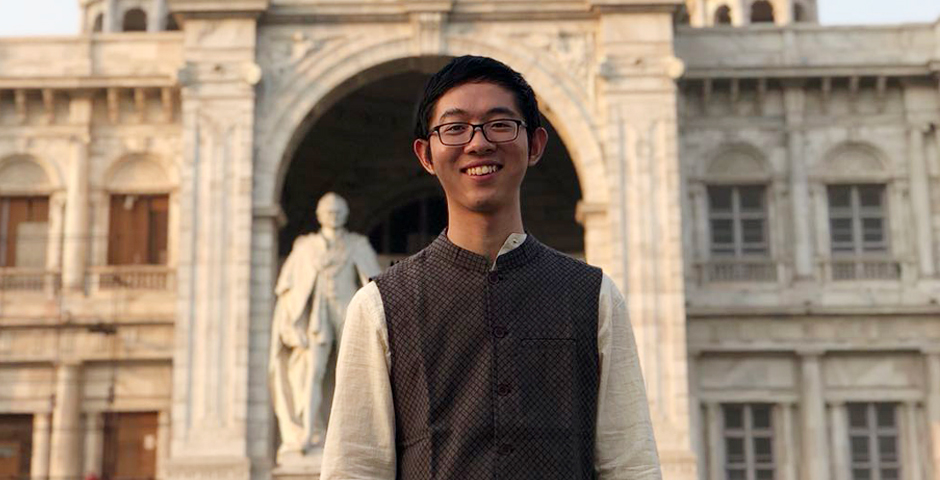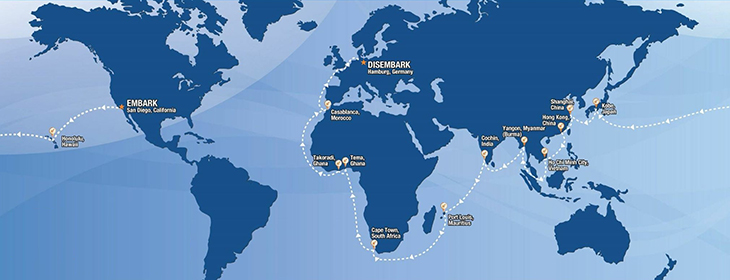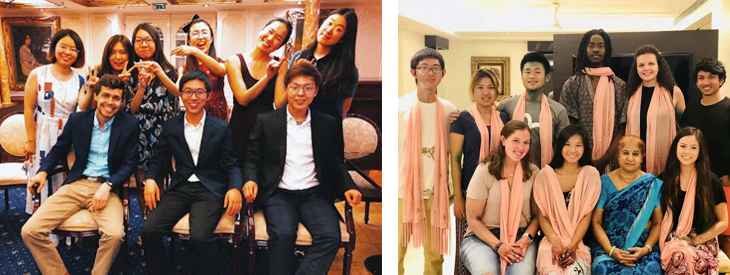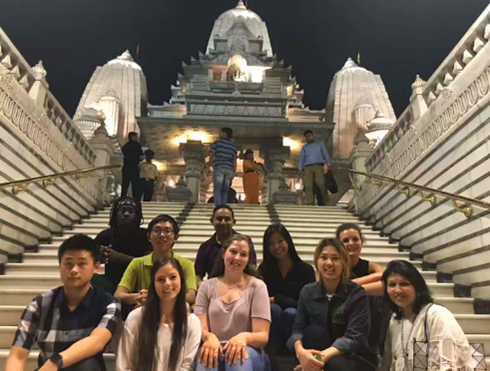
Still undecided on his major by the end of his sophomore year, NYU Shanghai student Jiaqiao Xiang (Frank), chose to take a gap year that would see him studying and travelling to 11 countries in Asia, Africa, Europe, and North America. With his journey coming to an end, the Anhui native looks back on his year and shares his advice to NYU Shanghai students considering their junior year options.

photo by Guojun Ao, 敖国俊.
What motivated you to take a gap year?
Two years after studying at NYU Shanghai and still undecided about my major, I decided to take a gap year to explore my options. Ever since childhood, it has been my dream to travel around the world and I remembered a story I had read when I was in high school about a student who had spent a whole semester on a ship through the Semester at Sea (SAS) program. I looked it up and was immediately hooked by the summary of the journey: “102 Days, 11 Countries, 15 Cities, 4 Continents.”
For the first semester of my gap year, I decided to apply to Duke Kunshan University’s Global Learning Semester Program. I was fortunate to be offered a full scholarship from Duke Kunshan, and a 2/3 scholarship from SAS, which made my gap year possible.

What courses are you taking on board the ship, and how do they fit into your studies at NYU Shanghai?
I’m taking 4 courses, 12 credits in total: Introduction to Cultural Anthropology, Oceanography, Global Studies, and Macro Economics. Global Studies is similar to Global Perspectives on Society at NYU Shanghai, where we learn the history, culture, and current events about the countries that we are going to visit.
NYU Shanghai does not accept credits for non-NYU programs, so I knew most of my courses would not count towards my degree, however, after petitioning, I will be able to use the Oceanography course towards my Science Core requirement.
What is a typical day like on the ship?
The days at sea run differently than days on land, as we do not follow the concept of dates. All we have is ‘A day’ or ‘B day,’ and the days run as such: A1, B1, A2, B2.
A typical ‘A day’ for me would be like this: wake up early in the morning, have breakfast and enjoy the sunrise on the top deck, have two classes each in the morning and afternoon, and enjoy dinner with sunsets and sea winds. At night I either go to lectures or events or chat and play games with friends.
On ‘B days’ I don't have classes. I sometimes go to the pool or workout at the gym (it's fun when you work out with the ship shaking). The workload at SAS is demanding, so on ‘B days,’ I spend the rest of my time studying and preparing for exams--both Macro Economics and Oceanography have two midterms and one final. We don’t have internet access at sea, so researching where to travel before each port is quite a challenge.
On port, we are required to attend 4 required field class lead by professors, which is 20% of our grade. We also have the opportunity to travel independently.

Favorite memory so far?
Neptune’s Day is a longstanding SAS tradition when crossing the equator, which involves jumping into the pool, kissing a live fish, greeting “Neptune” (played by professors), and shaving our heads. Around 40 of us participated in the hair-shaving event, and I am proud to be one of them!
What have been some of your takeaways from this experience?
As one of only 7 Chinese students among a cohort of 550, this is the first time I have been part of a minority group, which has been a great opportunity to step out of my comfort zone and learn more about different cultures. I really enjoyed late-night talks with students from all over the world. Talking with students from Kenya and Tanzania about current issues in Africa, opened my eyes to prejudices I had held and I have since learned a lot about other cultures and the universal values that we all share.

Sunrise in Bagan, Myanmar
Have you decided what you will be doing for your junior year?
I am really fortunate to have been able to take courses in different areas during my gap year. I am now thinking about maybe double majoring in business and data science. I will be studying away at NYU Abu Dhabi next semester, which is a part of the world I have not been to yet and I’m really interested in learning about the Middle East. I will also be taking computer science courses, and some physical education courses to take advantage of NYUAD’s state of the art sports facilities.
What would you say to other students considering an alternative study away year or gap year?
The best thing about NYU Shanghai is when you have an idea, the school will provide the best resources they can offer to help you turn your idea into reality.
My advisor Li Hu was really encouraging and helped me with all of the procedures. I also received a lot of help from the Academic Resource Center (ARC) and Global Awards Office on editing my application essays. Without their help, I might never have gotten scholarships.
A gap year is not for everyone, but at NYU Shanghai, you can make it happen if you wish.

--
Read about other alternative study away options: Shirley Zhao’s year studying in Tokyo.

